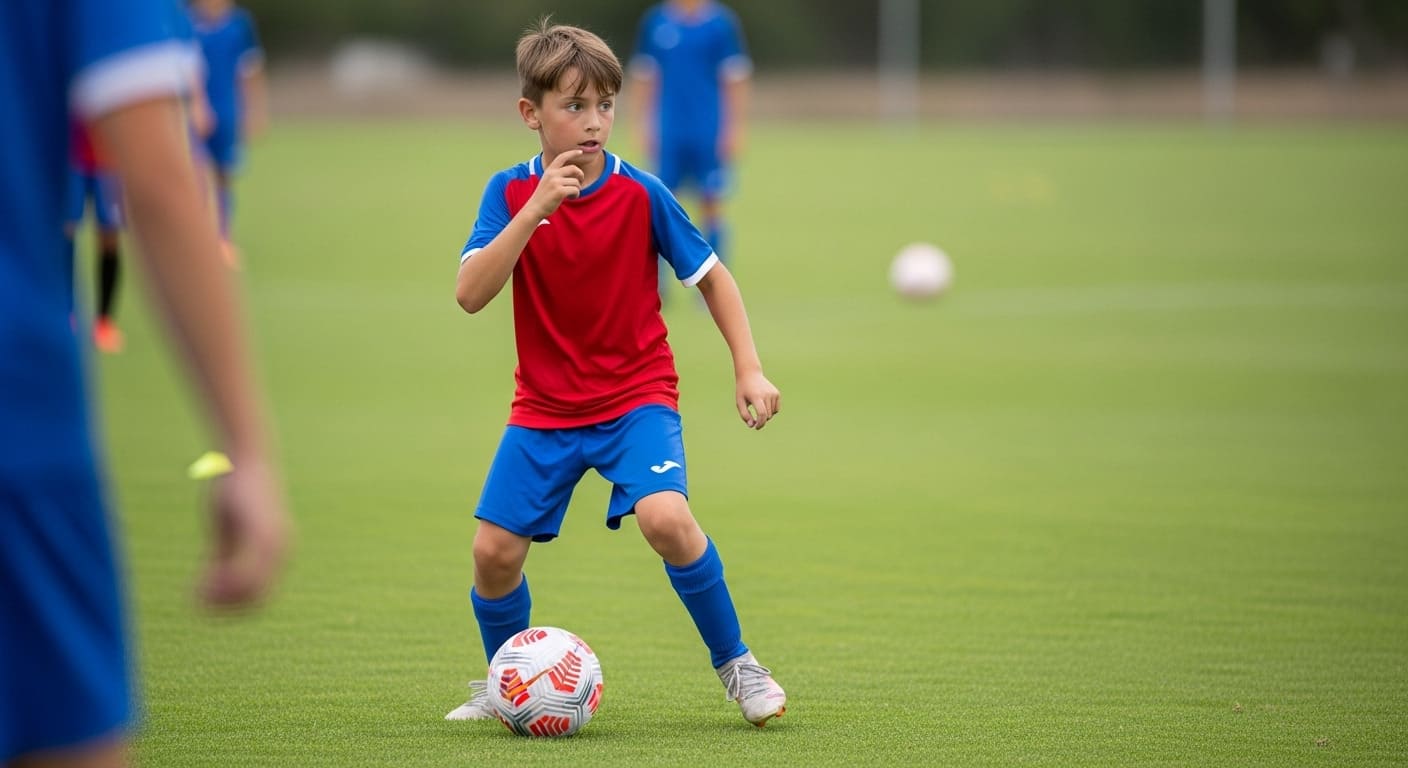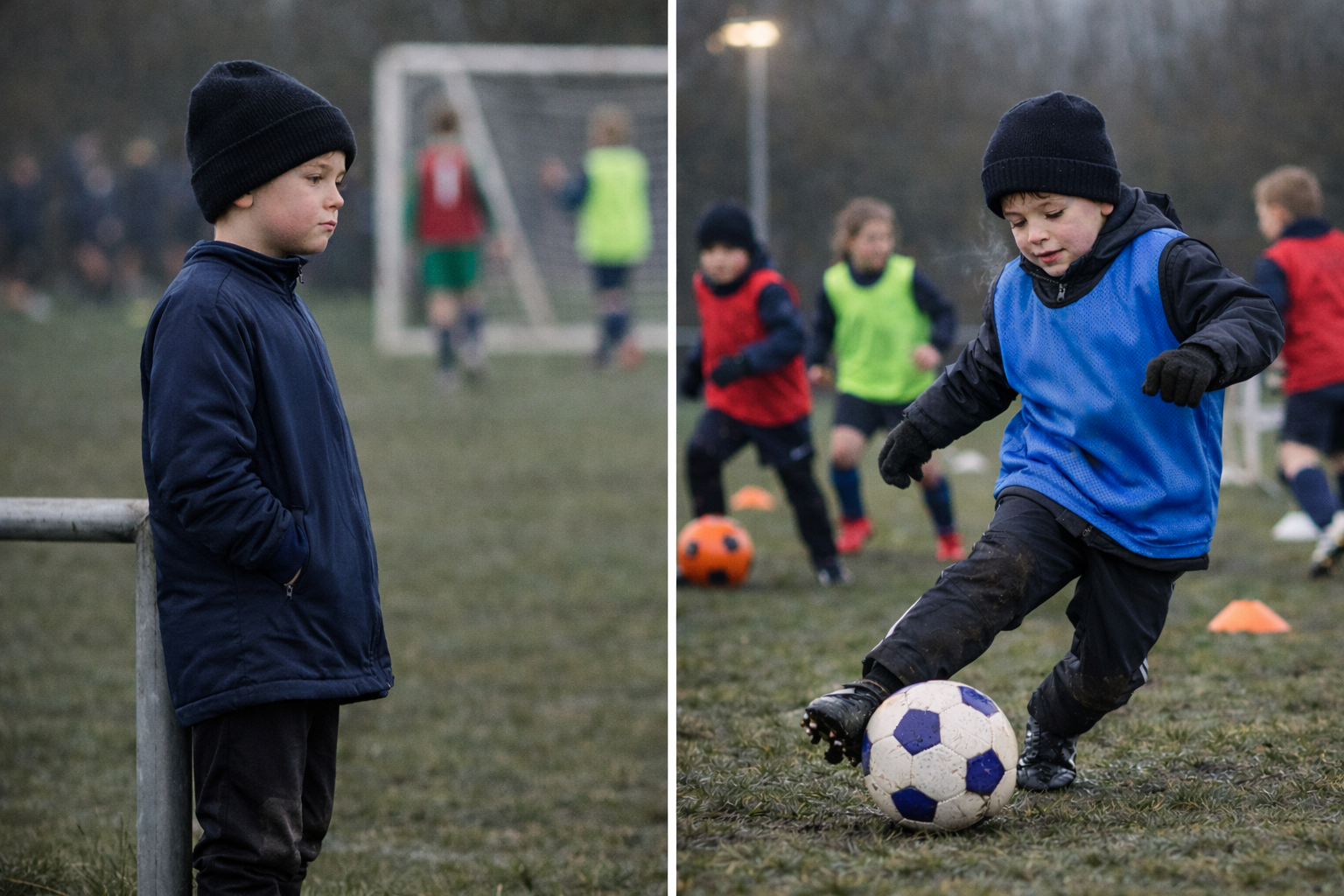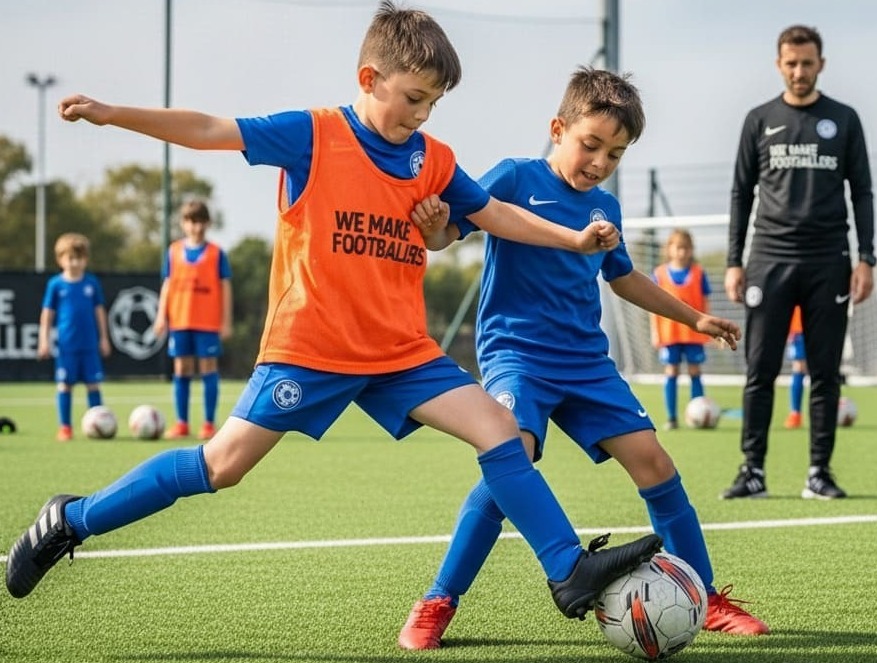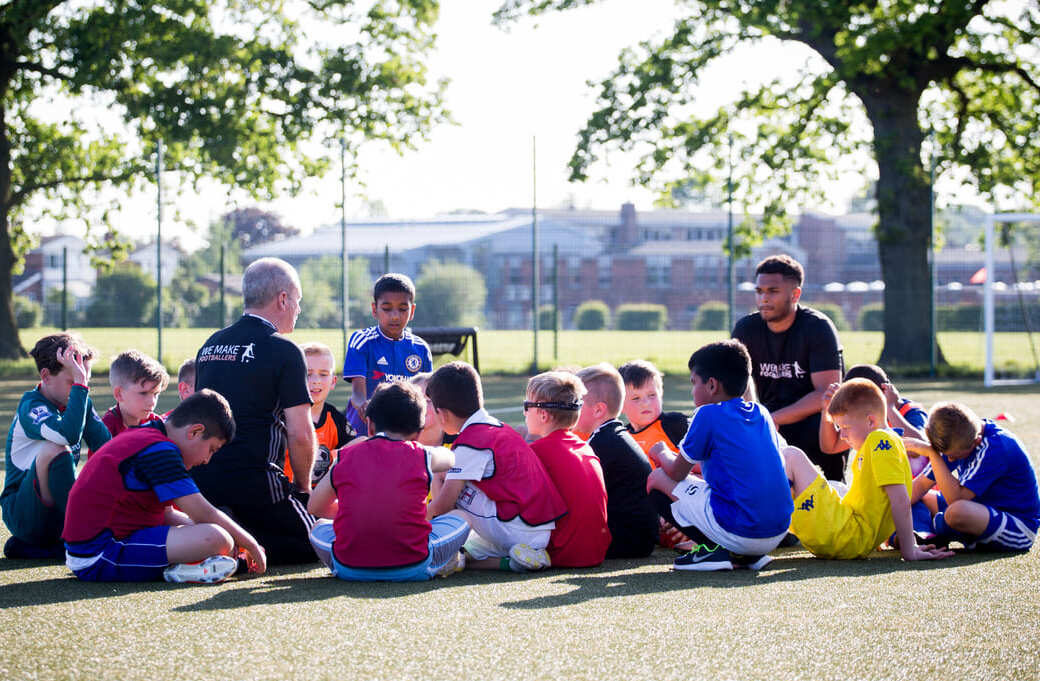Unstructured Play: How Free Football Sparks Creativity in Young Players
In a sea of strict drills and marked cones, free play cuts through rigid routines like a fresh breeze. By kicking a ball between walls or in a crowded backyard, kids rediscover simple joy and learn through instinct. That casual pick-up game of Football for fun and development taps into creativity, helping youngsters build confidence without stressing over tactics. It may seem surprising that zero structure produces real growth, yet research shows these unstructured moments spark personal style faster than formal lessons. That freedom lays the groundwork for long-term player development and reducing pressure in youth sports. At We Make Footballers in the UK, with 120+ academies and over 12,000 players, unstructured play is encouraged alongside structured sessions.
Embracing Child-led Football Practice
Child-led Football practice breaks free of rigid coaching by handing control to the kids themselves. With simple pick-up matches, a few cones, and a ball, participants decide where to dribble, who to challenge, and how fast to switch play. This self-guided style boosts engagement because players own every moment, making Football for fun and development feel genuine rather than chore-like. When young athletes shape their own sessions, they learn to manage space and pace, reducing pressure in youth sports by stripping away over-coaching. Even a half-hour game on a small patch of grass can build confidence and excitement.
Improving Decision Making in Football
Every young player has felt that moment of hesitation when an open goal waits or a pass lands in space. That pause often stems from too few unscripted moments. Adding free-form challenges boosts situational instinct, improving decision making in Football by throwing kids into shifting patterns of play. Short-sided kick-arounds sharpen both vision and footwork. Studies show that players with more street-style practice react faster than those limited to rigid drills. At We Make Footballers, small-sided games are a core part of weekly training sessions, giving children the chance to read the game in real time and build confidence in their decisions.
Problem-solving Skills for Kids
Young players tackling a moving ball without a script face puzzles at every turn. With no coach calling the play, children must observe gaps, judge angles, and adapt on the fly. This environment primes problem-solving skills for kids by forcing them to experiment with passes and movement. A small group chasing a loose ball quickly discovers which moves work, which fail, and how to regroup. This trial-and-error approach builds creativity and resilience. While structured drills teach technique, unstructured play delivers discovery - the thrill of figuring things out. Each missed shot or improvised flick becomes a learning step in developing Football IQ.

Building Resilience in Young Athletes
Resilience on the pitch grows from messy moments when a tackle fails or a shot misses. In unstructured games, kids learn to bounce back quickly and keep playing. This process of building resilience in young athletes strengthens their mindset, teaching them that mistakes are part of growth. At We Make Footballers, coaches balance structured drills with free-play segments so players practise recovery in safe, fun settings. Over time, this rebound effect becomes part of their character, preparing them for challenges on and off the field.
Cognitive Benefits of Play
When children invent passing lanes, imagine goals, and navigate crowded spaces without strict rules, they stimulate creativity and focus. These cognitive benefits of play extend beyond Football into school and daily life. Active, imaginative games boost concentration and memory far more than sedentary routines. Free scrimmages light up developing brains, strengthening decision-making and creativity. This makes unstructured play an important tool not just for athletic development, but also for academic and social growth.
Physical Literacy in Children
Physical literacy in children starts with mastering movement - running, jumping, and changing direction comfortably. Free play in Football lets kids explore balance, agility, and coordination more naturally than static drills. A ball bouncing off a wall or rolling unevenly forces instant adjustments, building core motor skills and muscle memory. At We Make Footballers UK academies, children develop these fundamentals in both structured and unstructured sessions, laying the foundation for future performance.
Social Skills Through Sport
Football feels most rewarding when laughter and teamwork replace pressure. In unstructured games, children learn social skills through sport by negotiating roles, sharing space, and supporting teammates. They discover how to encourage each other after mistakes and resolve small disputes without adult intervention. These interactions build empathy, communication, and leadership instincts. At We Make Footballers, sessions are designed to encourage friendships, respect, and cooperation, with small groups ensuring every child has a voice. This turns Football into more than sport - it becomes a social classroom where children develop belonging and confidence.



